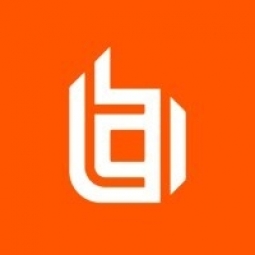Customer Company Size
Large Corporate
Region
- America
Country
- United States
Product
- Bomgar's appliance-based remote support software
Tech Stack
- Remote Support Tools
- Virtualization
Implementation Scale
- Enterprise-wide Deployment
Impact Metrics
- Cost Savings
- Customer Satisfaction
- Productivity Improvements
Technology Category
- Application Infrastructure & Middleware - API Integration & Management
Applicable Industries
- Finance & Insurance
Applicable Functions
- Business Operation
Use Cases
- Remote Asset Management
- Remote Collaboration
Services
- System Integration
- Software Design & Engineering Services
About The Customer
Fiserv, Inc. is a Fortune 500 company that provides information management systems and services to the financial and insurance industries. Founded in 1976, the company works closely with many of the world's best-known technology vendors and has grown to incorporate businesses and offices nationwide. Fiserv has been providing technology solutions for the banking industry for 30 years, where security is of paramount importance to the company’s bank clients and their customers. The company has a team of 50-100 employees dedicated to providing remote support.
The Challenge
Fiserv, a Fortune 500 company providing technology solutions for the banking industry, had a team of 50-100 employees dedicated to providing remote support. However, staff often spent up to two weeks a month traveling to client sites for training and software installation. The company started offering 'vTrips' (virtual trips) to clients for software upgrades, which were well-received and identified as a potential new service channel. However, for this service to be effective, Fiserv needed a solution that could 'virtualize' its staff and ensure greater productivity. The solution also needed to meet the stringent security and audit needs of both Fiserv and its clients. The company's previous solution had a 'pay by the drink' licensing structure, which became costly as the use of clientless remote support expanded.
The Solution
Fiserv selected Bomgar's appliance-based remote support software as the foundation for its vTrips service, designed to decrease the number of onsite client visits and eliminate the cost and productivity issues caused by travel. Using Bomgar, Fiserv can easily install upgrades to its customers’ software, as well as provide user training and product support to its banking customers. Bomgar’s onsite deployment ensures Fiserv’s client data remains securely within the network. Additionally, Bomgar enables Fiserv to record and play back vTrip sessions, which provides insight into who is in control of the session at any given point, enhancing auditability. Fiserv’s vTrips provide clients with immediate, on-demand service, even in less than ideal circumstances. By implementing vTrips and creating a remote failover site, Fiserv ensures that in the case of unforeseen disaster, the company can still conduct business with its clients.
Operational Impact
Quantitative Benefit

Case Study missing?
Start adding your own!
Register with your work email and create a new case study profile for your business.
Related Case Studies.

Case Study
Real-time In-vehicle Monitoring
The telematic solution provides this vital premium-adjusting information. The solution also helps detect and deter vehicle or trailer theft – as soon as a theft occurs, monitoring personnel can alert the appropriate authorities, providing an exact location.“With more and more insurance companies and major fleet operators interested in monitoring driver behaviour on the grounds of road safety, efficient logistics and costs, the market for this type of device and associated e-business services is growing rapidly within Italy and the rest of Europe,” says Franco.“The insurance companies are especially interested in the pay-per-use and pay-as-you-drive applications while other organisations employ the technology for road user charging.”“One million vehicles in Italy currently carry such devices and forecasts indicate that the European market will increase tenfold by 2014.However, for our technology to work effectively, we needed a highly reliable wireless data network to carry the information between the vehicles and monitoring stations.”

Case Study
Safety First with Folksam
The competitiveness of the car insurance market is driving UBI growth as a means for insurance companies to differentiate their customer propositions as well as improving operational efficiency. An insurance model - usage-based insurance ("UBI") - offers possibilities for insurers to do more efficient market segmentation and accurate risk assessment and pricing. Insurers require an IoT solution for the purpose of data collection and performance analysis

Case Study
Smooth Transition to Energy Savings
The building was equipped with four end-of-life Trane water cooled chillers, located in the basement. Johnson Controls installed four York water cooled centrifugal chillers with unit mounted variable speed drives and a total installed cooling capacity of 6,8 MW. Each chiller has a capacity of 1,6 MW (variable to 1.9MW depending upon condenser water temperatures). Johnson Controls needed to design the equipment in such way that it would fit the dimensional constraints of the existing plant area and plant access route but also the specific performance requirements of the client. Morgan Stanley required the chiller plant to match the building load profile, turn down to match the low load requirement when needed and provide an improvement in the Energy Efficiency Ratio across the entire operating range. Other requirements were a reduction in the chiller noise level to improve the working environment in the plant room and a wide operating envelope coupled with intelligent controls to allow possible variation in both flow rate and temperature. The latter was needed to leverage increased capacity from a reduced number of machines during the different installation phases and allow future enhancement to a variable primary flow system.

Case Study
Automated Pallet Labeling Solution for SPR Packaging
SPR Packaging, an American supplier of packaging solutions, was in search of an automated pallet labeling solution that could meet their immediate and future needs. They aimed to equip their lines with automatic printer applicators, but also required a solution that could interface with their accounting software. The challenge was to find a system that could read a 2D code on pallets at the stretch wrapper, track the pallet, and flag any pallets with unread barcodes for inspection. The pallets could be single or double stacked, and the system needed to be able to differentiate between the two. SPR Packaging sought a system integrator with extensive experience in advanced printing and tracking solutions to provide a complete traceability system.

Case Study
Transforming insurance pricing while improving driver safety
The Internet of Things (IoT) is revolutionizing the car insurance industry on a scale not seen since the introduction of the car itself. For decades, premiums have been calculated using proxy-based risk assessment models and historical data. Today, a growing number of innovative companies such as Quebec-based Industrielle Alliance are moving to usage-based insurance (UBI) models, driven by the advancement of telematics technologies and smart tracking devices.
Case Study
Enhancing Security and Compliance in Remitly's Global Money Transfer Service with Fastly
Remitly, an online remittance service, was faced with the challenge of securing its proprietary global transfer network. The company needed a security solution that could meet PCI requirements and protect customers' sensitive transactions through its mobile application. The solution had to be capable of defending against new and emerging attack types without impacting performance. Remitly also had to deal with irregular traffic patterns, such as a sudden spike in account transfers from a small network segment on the Pacific coastline of South America. The company needed to determine in real time whether such traffic indicated an attack or valid requests. A traditional web application firewall (WAF) would not be able to distinguish this traffic, potentially leading to customer frustration if the IP was blacklisted.







